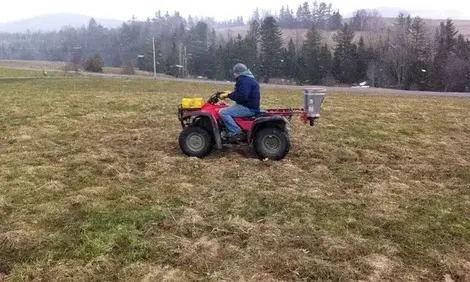



Marfrig partners with Embrapa to launch carbon neutral meat line
Marfrig and the Brazilian Agricultural Research Corporation (Embrapa) announced the launch of the Viva brand, a new meat line with sustainability attributes.Developed by Embrapa, carbon neutral meat (CCN) is a certification for cattle raised in silvopastoral (livestock-forest) or agrosilvipastoril (crop-livestock-forest, ILPF) integration systems.
To develop Viva - which gives its name to different cuts of beef for the grill and day by day - Marfrig invested around 10 million reais. The resources were allocated to research, property certification, brand building, construction of cutting standards, disclosure, royalties, among others. The line will be sold, starting this month exclusively in 10 selected Pão de Açúcar stores in the city of São Paulo, and later on nationally.
The Viva line products come from animals inserted in a livestock-forest production system, which neutralizes methane emissions within a protocol developed by Embrapa. This compensation is ensured after certification and verification by independent auditors. In addition, the protocol guarantees differentiated and high quality products, as well as all animal welfare precepts met within the production system.
Sustainable production
“By encouraging sustainable production, we create value for the company and the business chain. Furthermore, the development of carbon neutral meat, in partnership with one of the most respected research and innovation centers in agribusiness worldwide - Embrapa, reaffirms our commitment to four of the 17 Sustainable Development Goals (SDGs) of the UN 2030 Agenda "says Miguel Gularte, CEO of Marfrig. They are: combating climate change, living on Earth, responsible consumption and production and partnerships in support of the goals.
For Embrapa, the production of carbon neutral meat strengthens the domestic market and, in the future, the export of meat to demanding countries, differentiating the Brazilian product in terms of sustainability. “It is a project with the participation of 12 Embrapa research centers, involving a network of more than 150 researchers and also several institutions. The agricultural sector will be the engine of the Brazilian recovery and will need partnerships like this, joining efforts from the public and private sectors,” emphasized Celso Moretti, Embrapa's president.
"The partnership with Marfrig places our meat on a new level of perception of value in the national and international markets, and meets the growing demand for sustainable production practices and actions that guarantee animal welfare, with a focus on integration systems , which contribute to both mitigation and the reduction of greenhouse gases,” says the executive director of Innovation and Technology at Embrapa, Adriana Regina Martin.
The director of Sustainability of Pão de Açúcar, Susy Yoshimura, states that, in addition to conscious consumption, it is important to strengthen the curation of more sustainable products, encouraging the value chain for innovation in production processes with less socio-environmental impact. "It is a privilege, in partnership with Marfrig, to exclusively offer the launch of the Viva line in our portfolio and to expand the carbon neutral options to our customers who are looking for quality products with sustainable attributes," he says.
From the point of view of the producer, the advantages of livestock-forest integration are evident not only in terms of gains for the environment, but also in animal comfort and productivity.
“CCN certification crowns our dedication to an integration project that we started in 2009,” says Arthur Pollis, president of Santa Vergínia Agro, the first rural property in Brazil certified with the CCN seal and supplier of cattle to Marfrig, in the state of Mato Grosso do Sul.
About the Carbon Neutral Meat seal
The main purpose of the CCN concept brand developed by Embrapa is to attest to the production of beef cattle in systems with the mandatory introduction of trees as a differential. In these conditions, the presence of the tree component in silvopastoral (livestock-forest, IPF) or agrosilvipastoril (crop-livestock-forest, ILPF) integration systems neutralizes enteric methane (exhaled by animals), one of the main gases responsible for the effect greenhouse that causes global warming.
The concept can boost exports, mainly to the European market, which is very demanding. The perspective is to improve the visibility of Brazilian meat and promote greater adoption of the ILPF and IPF systems in Brazil. A study carried out at Embrapa Gado de Corte (Campo Grande-MS) shows that about 200 trees per hectare would be sufficient to neutralize the methane emitted by 11 adult cattle per hectare per year, with the usual stocking rate in Brazil being one to 1.2 animals per hectare.



